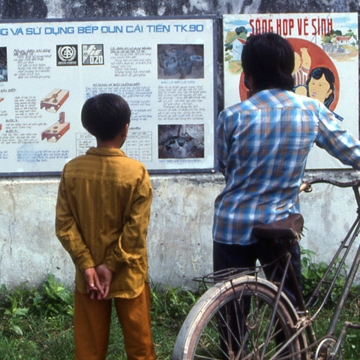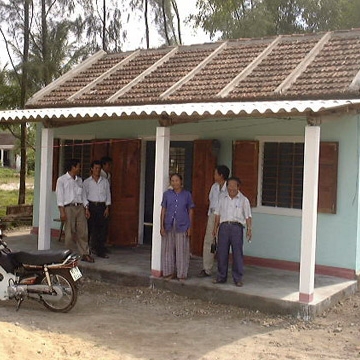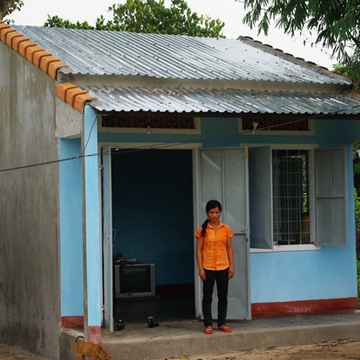Central Vietnam faces drought, partly caused by hydro-power plants
Tens of thousands of hectares of rice and crops in provinces in central Vietnam are in need of water now.
Mr. Huynh Van Thang, deputy director of the Da nang Department of Agriculture and Rural Development, said that around 6,000 hectares of crops are threatened by drought.
In Thua Thien – Hue province, half of the rice area lacks water.
In Phu Yen province, Dong Cam, the largest irrigation work in the province, which supplies water for 15,000 hectares of rice, is seriously dry.
At present, thousands of households in the downstream regions of Thu Bon, Vu Gia rivers in Quang Nam and Ba River in Phu Yen are thirsty for water.
Besides prolonged dry and sunny weather, drought is caused by hydro-power plants, which store water for power generation.
Localities which do not have hydro-power plants on the upstream arrears, for example southern Quang Nam, southern Quang Ngai and northern Binh Dinh, do not lack water. This is the clear evidence for impacts of hydro-power plants.
Since Dak Min 4 hydro-power plant changed the flow of Vu Gia River, Da nang has lacked water during the dry season. Da nang used to lodge complaints to the government, asking Dak Min 4 to return water to Vu Gia River, at least 48cu.m per second but this plant only released water back at the speed of 7cu.m/second.
This situation happens again this year. “We cannot discharge water at 25cu.m/second speed because we will lack water for power generation,” said an official of Dak Min 4.
If Dak Min 4 causes drought and salt-water encroachment in northern Quang Nam and Danang City, in Phu Yen, hydro-power plants on Ba River are the culprits of drought.
At this moment, most of plants try to store water, neglecting Phu Yen authorities’ request and the Ministry of Industry and Trade’s instruction. They argue that they lack water and they have to operate under the “competitive power market” policy, which starts from July 2012. Competition is good but why they compete with farmers?
This has become a yearly routine: storing water in dry and sunny weather and discharging in rainy and flooding season.
A competitive power market aims to ensure competition in power production and pricing, improve efficiency and attract more funding for power generation. As the power generation market becomes more developed, customers will have more opportunities to select power providers. The market operates under the model of a cost-based pool in which power producers have the right to offer power prices based on the market.
On July 4, Deputy PM Hoang Trung Hai asked related ministries to check and reject ineffective hydro-power projects.











